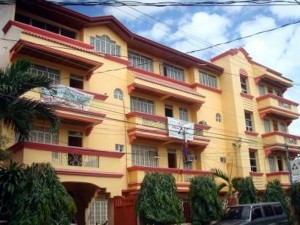DOLE sees more Filipinos hired by South Koreans
MANILA, Philippines—The Philippine government is hopeful that more Filipinos would be allowed to work in South Korea as the number of overstaying Filipino workers in that country has decreased, according to the Department of Labor and Employment.
From 30.6 percent in 2012, the number of illegal Filipino workers in South Korea dropped to 22.7 percent in 2013, said Labor Secretary Rosalinda Baldoz.
The Philippines’s current job seekers’ quota under South Korea’s Employment Permit System (EPS) is 8,000, or 100 more than last year’s quota.
According to Baldoz, the drop in the number of illegal workers will be a good factor when South Korea considers its annual quota for Filipino workers under the EPS.
“There was a huge reduction in the number of Filipinos who have illegally stayed in Korea after their EPS stint. This is a good sign that our aggressive strategy of addressing the issue of illegal staying EPS workers in South Korea is bearing fruit,” she said in a press statement.
Article continues after this advertisement“I have high hopes that our EPS quota will increase because our EPS performance has been consistently good,” Baldoz added.
Article continues after this advertisementThe other factors that South Korea considers for its EPS are labor market trends, level of labor shortages and economic conditions, she said.
The Philippines is one of the original six countries that signed in April 2004 the EPS memorandum of agreement with South Korea’s Ministry of Employment and Labor.
The Korean government adopted the EPS to introduce non-professional foreign workers in its small and medium industries under a transparent and efficient process of selecting, sending, and receiving foreign workers through a government-to-government arrangement.
“The EPS has become a global model for ethical, efficient, and transparent recruitment that has benefited South Korea’s SMEs and Filipino workers who have gained a lot of skills and competencies,” Baldoz said.
An estimated 8,247 Filipino workers are illegally staying in South Korea, said Baldoz, adding that the POEA is determined to reduce the number to achieve an increase in the Philippines’ EPS quota.
As of March 31, 2014, the number of Filipino workers who have been deployed to Korea is recorded at 35,936, three percent of whom have since returned to their Korean employers after coming home to the Philippines at the end of their EPS stint.
“Korea calls such returning EPS workers as ‘committed’ or ‘sincere’ workers,” said Baldoz.
POEA administrator Hans Leo Cacdac reported that for 2014, the “ceiling” for newcomers to Korea’s manufacturing industry under the EPS is 4,700, or 500 more than the “ceiling” in 2013.
“While most of the 15 sending countries under the EPS have received a reduced quota due to the reduction of the overall quota for EPS of 53,000, the Philippines is an exception and this is, indeed, a good sign,” said Cacdac.
